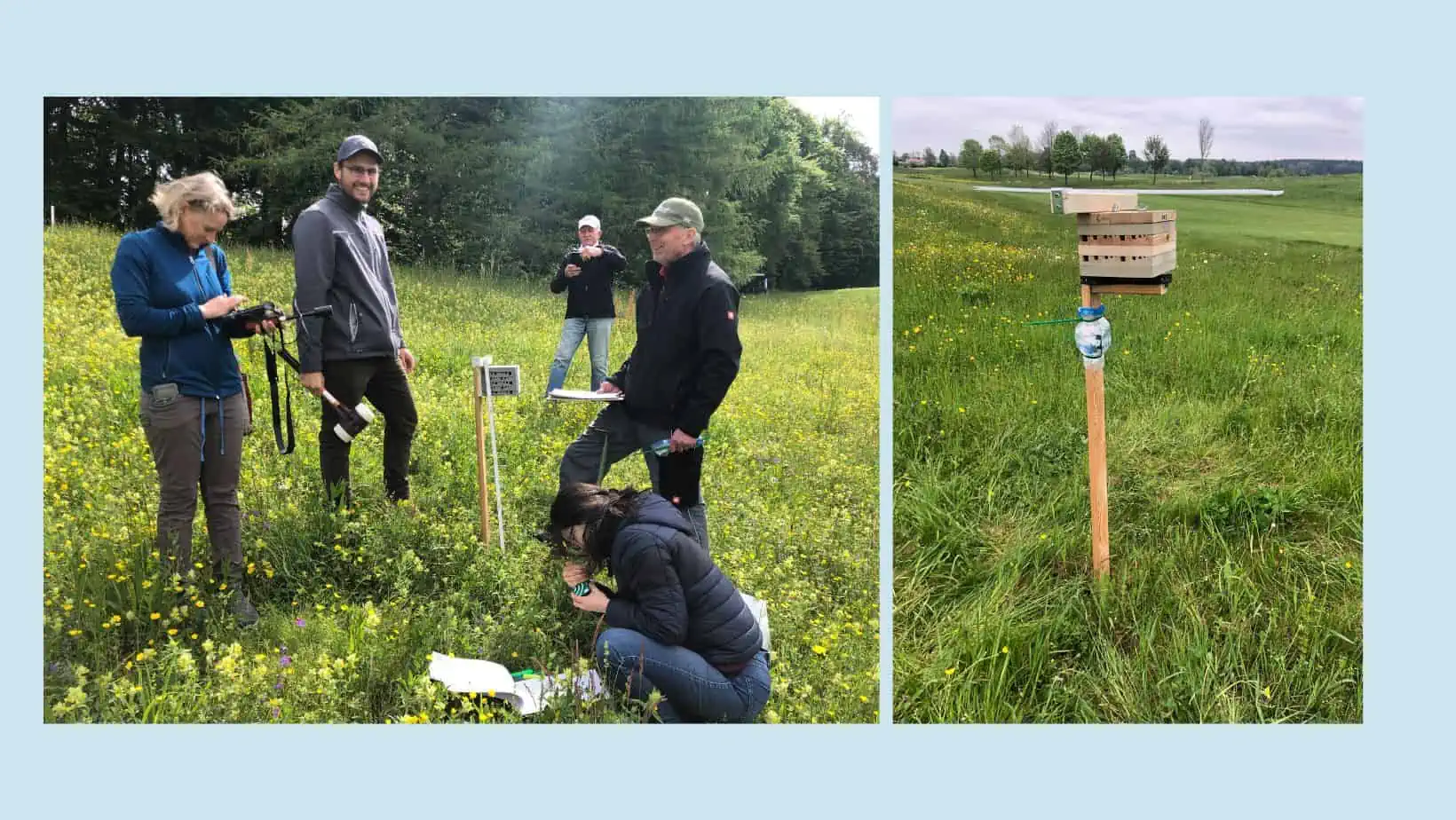GolfBiodivers: Wild bees make a start
A wild bee hotel kicks things off at Golf Biodivers. The housing, which visually does not have much in common with classic insect hotels, has now been installed on the first four golf courses in Bavaria. The TU Munich thus began the so-called field work in the GolfBiodivers project, Europe’s largest study project on biodiversity on golf courses. Scientists use this term to describe the on-site work that took place at GC Chieming, GC Valley, G&LC Regensburg and GC Erding-Grünbach. “We are starting here with so-called zero monitoring,” explains Prof. Dr. Johannes Kollmann of the TU Munich, Chair of Renaturation Ecology, who is the lead coordinator of the GolfBiodivers project in Germany with the other three universities of Kiel, Freiburg and Münster.
Study over six years
A total of 64 German golf courses will be involved in the study over a period of six years, which is being conducted by the Federal Agency for Nature Conservation together with the German Golf Association. In each case, depending on the vegetation phases, more and more golf courses join the research teams. For the four Bavarian golf clubs, this means: The wild bee hotels set up by the scientists are not only used to record the bees, but also to detect birds or other insects. The wild bee hotel also contains a recorder for sounds, which can be used, for example, to detect certain bird species.
The location for the wild bee hotels was first narrowed down by reviewing aerial photos and then fixed during a site visit. “It’s important that it’s sunny and relatively unobstructed, so it’s always a tree’s length away from a tree,” Kollmann says, explaining the key specifications. In the area of animals, the GolfBiodivers project will still focus primarily on bats, birds, butterflies and grasshoppers over the next six years.
At the Erding-Grünbach Golf Club, people are eager to see how the project progresses. “For us as a club, it’s a good opportunity to move forward. In addition, you may also become part of a group in which the exchange of practical experience becomes better,” says Michael Kollmair, the club’s nature officer, happily. Members at the traditional Bavarian club have already been informed about the launch of GolfBiodivers on the club grounds. A total of six wild bee hotels have been built here, all on generous meadow areas. Three of these will be ecologically enhanced over the next few years, and three will be left in place. Species monitoring then determines the extent to which the number of wild bees, for example, has increased.








